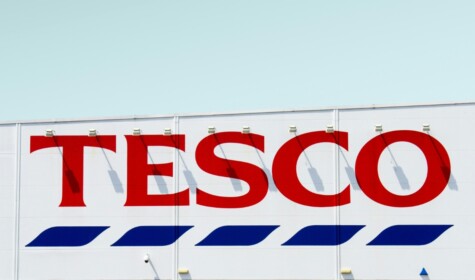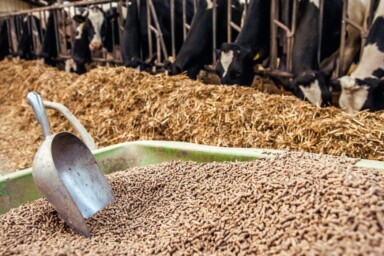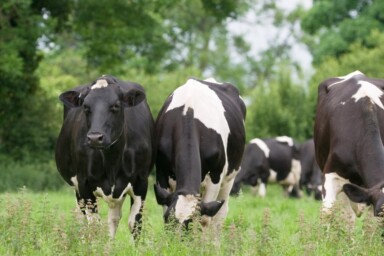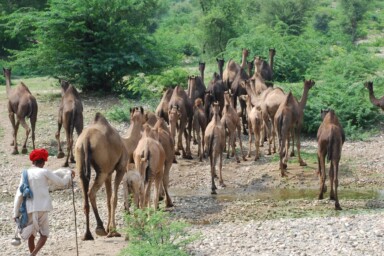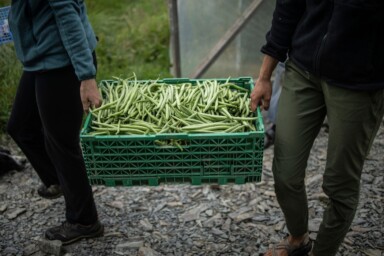SFT CEO, Patrick Holden, responds to the recent announcement from Tesco’s to cut a number of farmers from their Sustainable Dairy Group – a decision which Patrick calls ‘misguided’.
I’ve just read in Farmers Weekly that Tesco has announced their decision to reduce the number of dairy farmers in their milk supply pool, giving just 12-months’ notice to those who will be dropped. Apparently, they’ve taken this decision against the background of declining milk sales and the need to improve the sustainability of their supply chain.
In my opinion, this decision is misguided. It will have a range of direct and indirect negative impacts on climate change, pollution, biodiversity, milk quality and employment. Worst of all, it will perpetuate and accelerate the loss of one of our most precious cultural assets, the small family-run dairy farm. This community used to form the backbone of UK rural culture, however, during my lifetime of dairy farming, it has been decimated.
Customers are increasingly suspicious that many of the foods they eat, and milk in particular, are coming from ever larger and more industrialised farms. Unfortunately, these suspicions are well founded – more than half of the milk that is sold in UK supermarkets, now comes from dairy cows that are, to use the euphemistic jargon of the industry, ‘fully housed’, meaning they never get out on to grass.
I can understand the motives of Tesco’s head milk buyer – after all, their brief is to maintain profitability. They are in a price war against the other retailers who often use milk as a ‘loss leader’ because it is one of the few so-called KVIs (Known Value Items) the pricing of which they believe will persuade customers to shop in their stores.
In addition, they may have been told that the carbon emissions for each litre of milk produced by intensively managed ‘fully housed’ cows, is less than the emissions from lower-yielding, mainly grass-fed cows – in other words, the cows that I and thousands of other dairy farmers look after on our family farms. Even if this turns out to be true, which I dispute, that low carbon footprint is coming at the expense of multiple environmental, social and animal welfare costs, none of which are associated with small well-managed family dairy farms.
“More than half of the milk that is sold in UK supermarkets, now comes from dairy cows that are, to use the euphemistic jargon of the industry, ‘fully housed’, meaning they never get out on to grass.”
Arla, one of the big milk cooperatives is now paying a premium for so-called ‘carbon friendly milk’ based on exactly this formula. I suspect they are doing this because the cooperative is producer-owned and most of the producers on their board own these large, industrialised herds. You can understand why Arla and others are setting their own standards which cast their particular production systems in a better light. But we should understand that it is the inevitable consequence of not using common harmonised criteria for measuring farm sustainability.
I do care passionately about this existential threat to the family dairy farm. Holden Farm Dairy is one such unit. We are one of the ever-declining number of dairy farmers with fewer than 100 cows, which, I believe, is the ideal number for our 300-acre farm, where a herd of this size ensures cows are able to walk to grass twice a day, feed on fertiliser-free pastures, can be known individually and be treated with the dignity, respect and compassion that all dairy cows – and other creatures – deserve. When herds number 500 or more (with sometimes thousands of cows), the consequences of this industrial scale are inevitable: increased pollution, welfare issues and a whole range of negative social impacts in rural communities, all with stories the supermarkets wouldn’t want you to know.
Many years ago, when I was running the Soil Association, I had the good fortune to meet the then Chief Executive of Tesco, Sir Terry Leahy. Over a cup of tea, I politely suggested that Tesco’s policies were in danger of putting small and medium size UK farms out of business. His response stuck in my mind. He said, “What do you expect us to do? We are stuck between a rock and two hard places – our customers, who want ever cheaper food, our shareholders who demand better returns on their investments, and our competitors, who will gain market share unless we drop our prices.”
“When herds number 500 or more (with sometimes thousands of cows), the consequences of this industrial scale are inevitable: increased pollution, welfare issues and a whole range of negative social impacts in rural communities, all with stories the supermarkets wouldn’t want you to know.”
In response, I said, “Good answer. So if your job is giving your customers what they think they want today, mine is changing their attitudes so they become committed to buying better quality food tomorrow.” He then said, “We are like Pavlov’s dogs – we will do what our customers want us to do.”
Leahy was not wrong; as citizens and consumers, we have become fixated on the cheapness of our food, and at the same time we haven’t used our consumer power to insist that we have a right to know the story behind it. If you think about it, that is not a disempowering statement, it is the very opposite!
